15 essential John Williams scores, ranked
If the American blockbuster had a signature sound, odds are that it would come from the mind of John Williams.
The legendary film composer has crafted the soundscapes for over 70 films and along the way, he's been nominated for over 50 Academy Awards (taking home five) and won over two-dozen Grammys. Williams is the rare composer that most Americans can name and hum a few bars. That's because he's given the musical backbone to a sizable portion of some of the biggest, most popular movies of all time.
The bicoastal son of a jazz musician, Williams has set the mood to everything from turn-of-the-century bar fights to interstellar shootouts while always instilling a bit of discordant bombast and grandiosity to whatever he wrote. Imperial and imposing but always on the move, Williams' scores have been the heartbeat of the last 50 years of Hollywood's cultural dominance.
In short, there is really no history of American cinema since the '70s that Williams hasn't had an imprint on. With that in mind, we decided to take a look back and rank some of his most outstanding, essential work.
15. <i>Memoirs of a Geisha</i> (2005)
If you asked the average person to name John Williams scores off the top of their head, Memoirs Of A Geisha might not be the first selection that comes to mind. However, that doesn't mean his compositions for Rob Marshall's epic 2005 film — starring a who's who of Asia's finest acting talent including Zhang Ziyi, Michelle Yeoh, and Ken Watanabe — aren't worth seeking out.
Williams turns his ear for propulsive and bombastic melodies on to traditional Japanese instrumentation, creating a work that sways between gentle, meditative themes for the titular geisha (Ziyi) and heart-pounding selections to fill out her chaotic, tragic life.
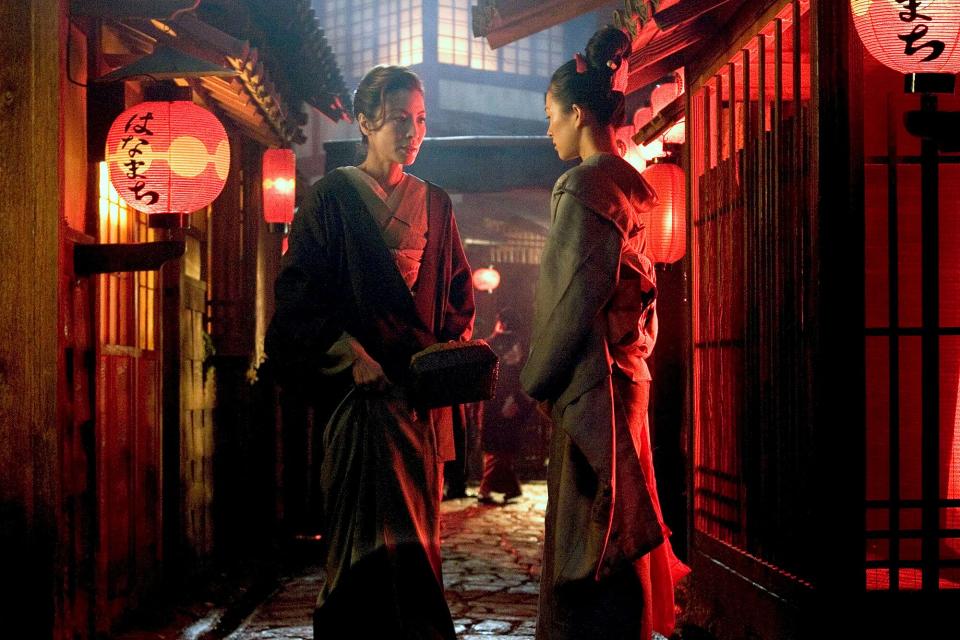
14. <i>Far & Away</i> (1992)
Yet again, Williams is able to translate the music of another country into his own signature style. This Ron Howard-directed romantic adventure tells the story of two Irish immigrants (Tom Cruise, Nicole Kidman) looking to make a new life on the American frontier. Far & Away's opening theme sounds like nothing less than if Dr. John Hammond himself had opted to build his ill-fated island park off the coast of Galway. The film's soundtrack carries on that way throughout, showing the boundless energy of down-to-their-last-dime hardscrabblers via fifes, fiddles, and harps.
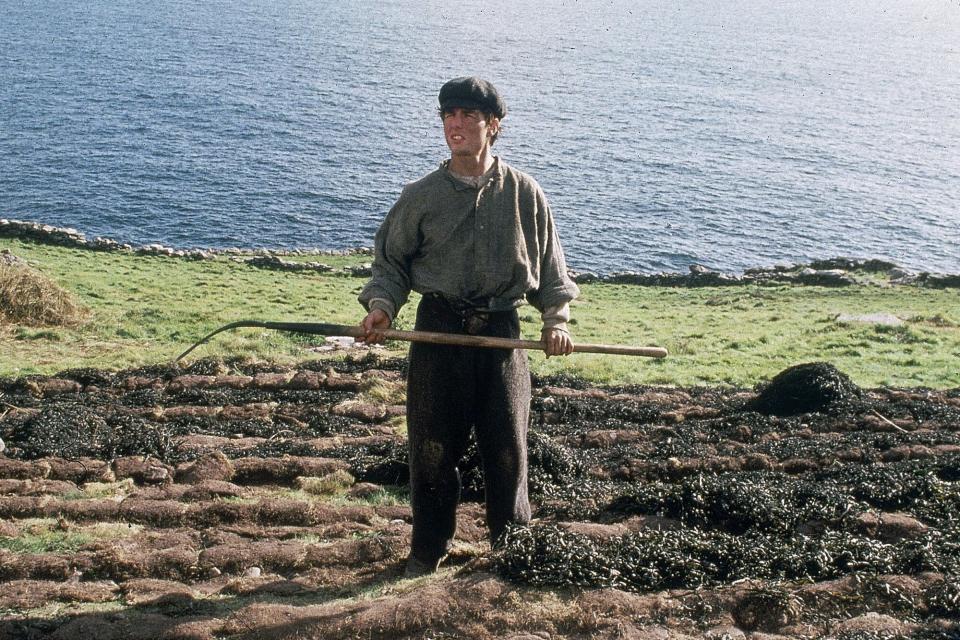
13. <i>Home Alone</i> (1990)
Breaking into the Christmas canon isn't easy. The holidays are so strongly built around tradition that essentially one piece of music has entered the seasonal lexicon since the days of Nat King Cole and Bing Crosby: Mariah Carey's "All I Want For Christmas Is You."
Still, Williams' score for this Chris Columbus-directed, John Hughes-written classic likely bubbles near the back of the average person's mind when they think of Christmastime. The composer manages to layer his hijinks-filled soundtrack for booby traps with sleigh bells to give us yuletide cheer with a side of smirk.
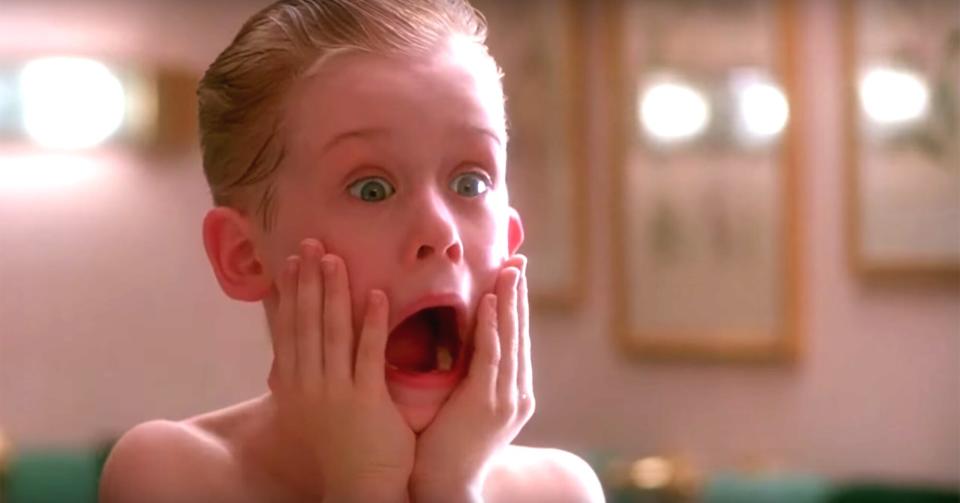
12. <i>Star Wars: Episode I - The Phantom Menace</i> (1999)
Though The Phantom Menace was rightfully derided for its overstuffed plot, stiff dialogue, and strange changes to Star Wars canon, even the staunchest hater had to admit that the final showdown between Darth Maul and this prequel's pair of Jedi was dazzling. Williams is the only composer willing to go big enough to match the reveal of a second lightsaber blade and "Duel of the Fates" is one of the greatest pieces of music in any Star Wars movie.
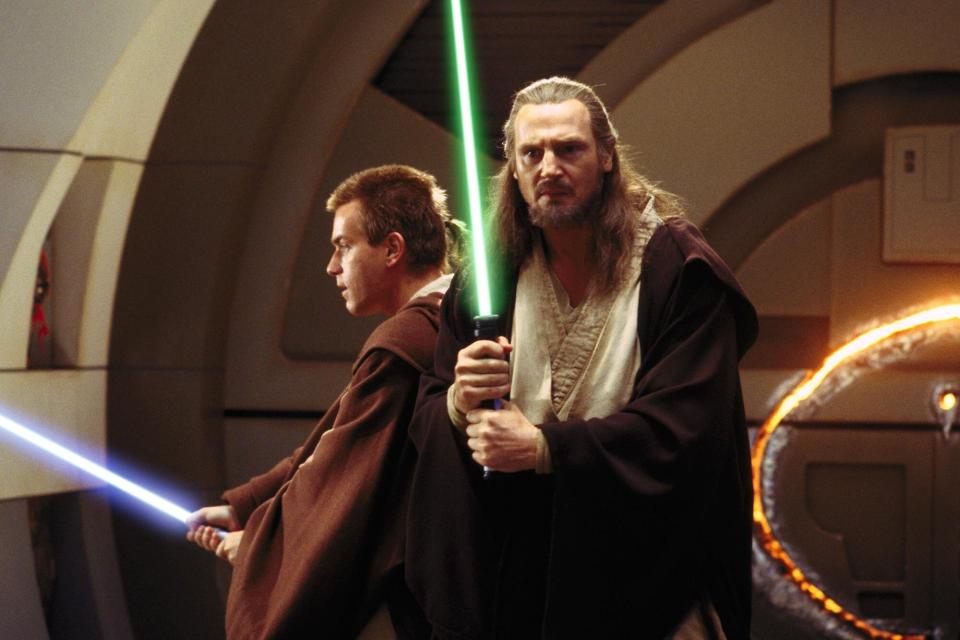
11. <i>Harry Potter and the Sorcerer's Stone</i> (2001)
There simply isn't a better composer for imagining the sound of a new world. Williams has been called on to create the backdrop for a guerrilla war in outer space, an island where dinosaurs have been brought back to terrifying life, and the landscape of a just-hidden world where witches and wizards live.
He's answered each with an instantly recognizable theme that helped cement these imaginary places in our brains. In Harry Potter and the Sorcerer's Stone, Williams draws us into its characters' magical realm with a playful, yet slightly sinister music box theme that soon expands out into a grandiose series of orchestral broomstick swoops, setting the stage for the mega-successful series to come.
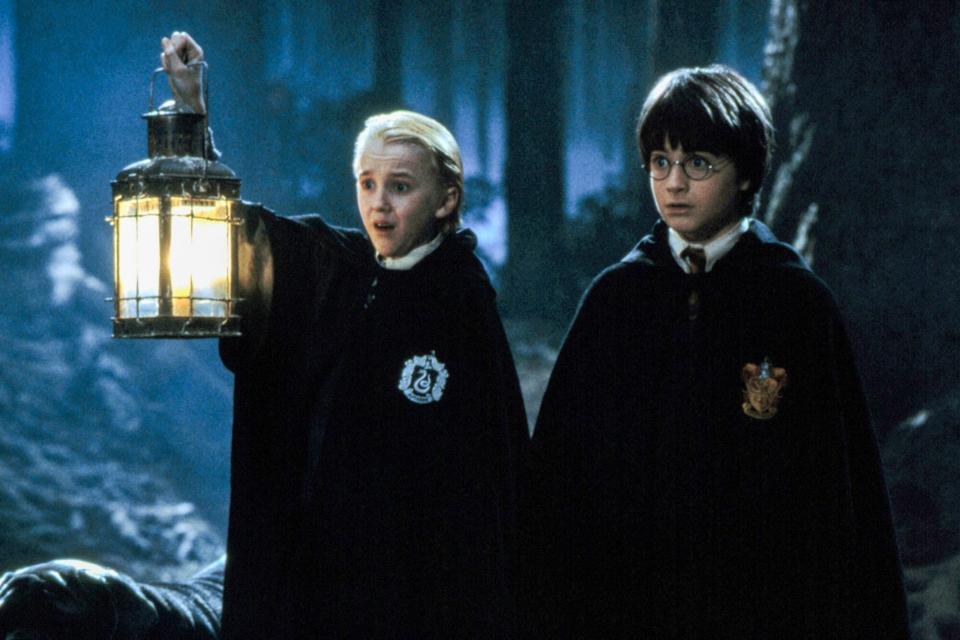
10. <i>Saving Private Ryan</i> (1998)
John Williams has scored everything from the explosion of the Death Star to the arrival at Hogwarts, so it takes a big moment for the composer to take a backseat to anything. However, it doesn't come much bigger than World War II.
Williams' score for Spielberg's Saving Private Ryan is perfectly balanced within the narrative, as it works incredibly well in the moments between the film's bloody setpieces, but falls completely silent for the horrific and tense moments of chaos that mark Ryan's harrowing and stunning battle sequences.
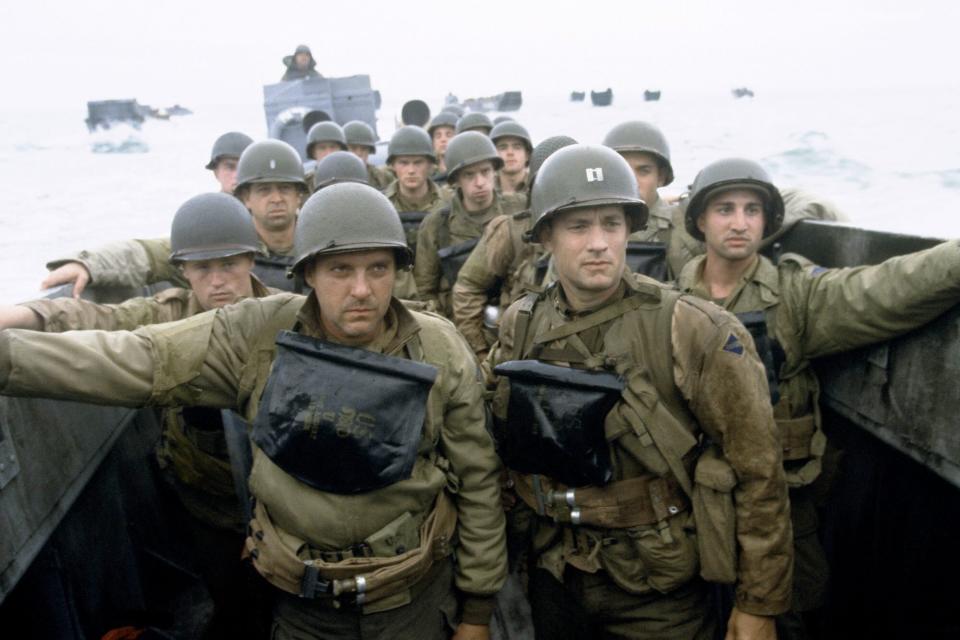
9. <i>Close Encounters of the Third Kind</i> (1977)
It's a rare feat to place a piece of music at the center of a movie and have it hold up the weight. That Thing You Do! pulled it off with a title track that doesn't get old despite endless plays.
Close Encounters of the Third Kind manages it in an entirely different way with its simple yet eerie keyboard communication that's both hummable and iconic. An entire film of buzzy, chaotic music suddenly cuts away so that these sounds can ring out clear across the cosmos. Both in the movie and as part of the score, it works against all odds.
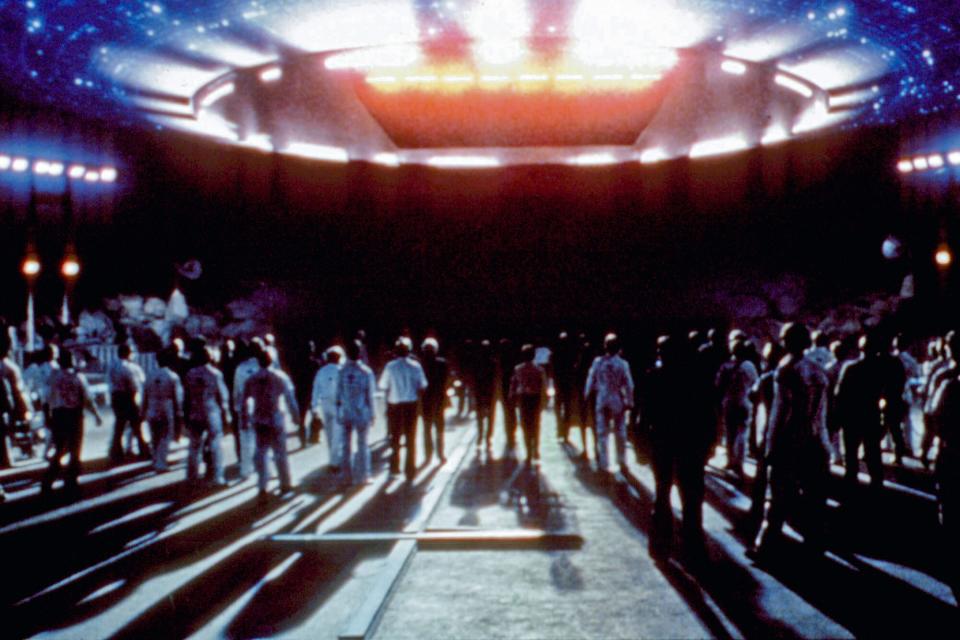
8. <i>Superman: The Movie</i> (1978)
Williams renders the comic book exploits of the first major superhero in big, broad strokes with his score for Richard Donner's 1978 opus, Superman: The Movie. The alien protector of Metropolis (and by extension America), played with indelible charm and gravitas by Christopher Reeve, is heralded by a brass, four-note riff as simple and bold as his tri-color spandex.
The blaring, martial horn intro that marked Superman's arrival on the scene carries with it the entire edifice of American nostalgia. It's "Men From Over There" simplicity reduces the world to black and white (or CMYK, at the very least), making it clear that Superman is the Good Guy and he's here to fight the not-so-good ones.
The military stomp of the score is so tied up in the conception of Superman as an ultra-powerful Eagle Scout that the theme had to be tossed entirely when directors wanted to add a few layers of grime onto the character in the 2010s. While we can't say that decision led to the backlash against DC's grimdark turn, it certainly didn't help.
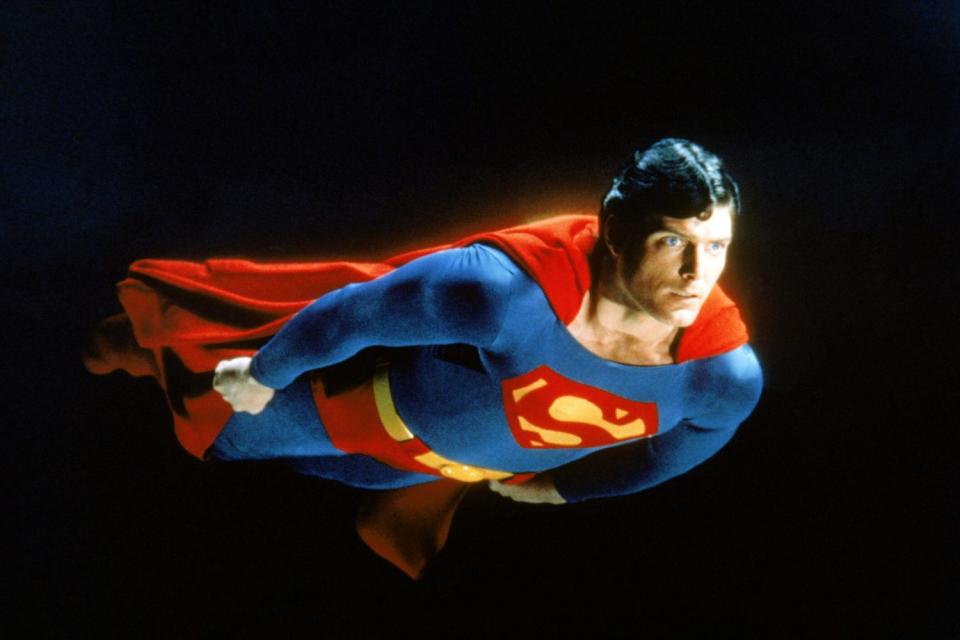
7. <i>Schindler's List</i> (1993)
John Williams likely isn't the first name that comes to mind when looking for a score for a somber, heart-wrenching, and often brutal story about Nazi Party member Oskar Schindler (Liam Neeson), who used his connections and wealth to shield his Jewish workers from harm during the Holocaust. Of course, longtime collaborator Steven Spielberg thought otherwise, and with Schindler's List, the pairing once again proves fortuitous and captivating.
Williams comes through with a haunting score that incorporates Yiddish and Israeli songs in a soundtrack to European Jews just hoping to make it through another day. Spielberg was right to lean on Williams and the Academy rewarded him with his last win for Best Original Score.
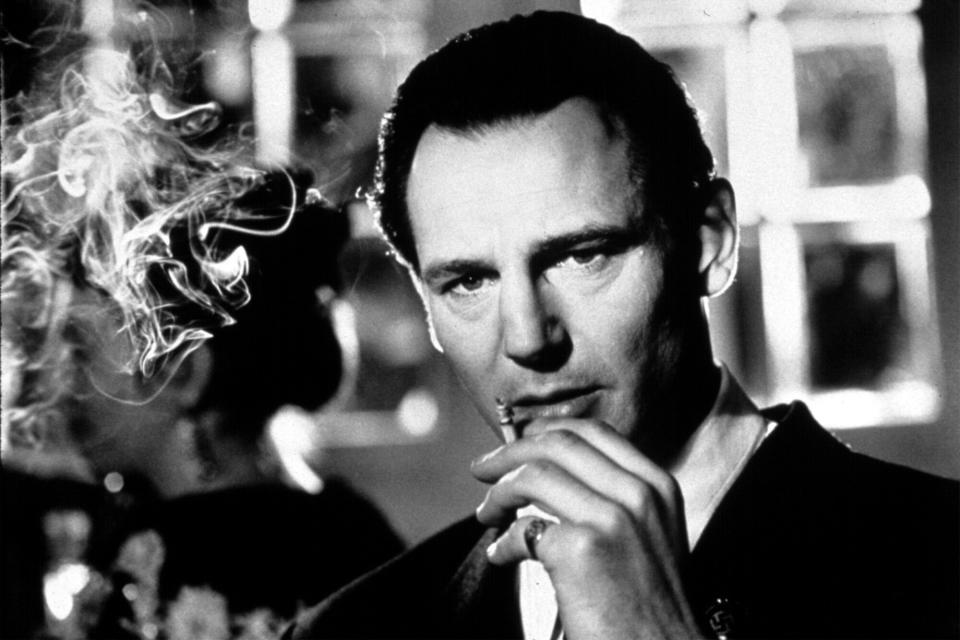
6. <i>Star Wars: Episode V - The Empire Strikes Back</i> (1980)
Certain pieces of music nail their assignment so well that they become shorthand for specific sentiments. "Eye of the Tiger," for instance, tells us someone is overcoming the odds, while "Chariots of Fire" resonates with the sounds of being inspirationally athletic.
"The Imperial March," on the other hand, will always tell us that a towering evildoer is coming this way. Darth Vader didn't need the march to come across as intimidating — the blacked-out space samurai outfit told the viewer plenty. Still, it's questionable that Star Wars' iconic villain would stick in our memory in quite the same way without those lock-step strings and blaring horns.
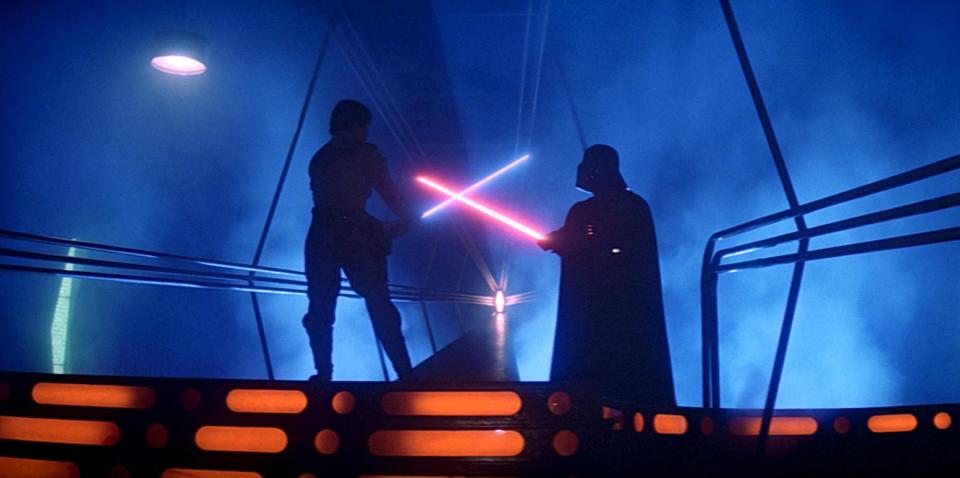
5. <i>Indiana Jones & The Raiders of the Lost Ark</i> (1981)
Indiana Jones is an amalgam of Hollywood archetypes, the essence of a big-screen hero boiled down and maybe left on the stove too long. All of the daring and courage of the Golden Age films about cowboys, fighters, pilots, and pirates is distilled into the score for the first Indiana Jones movie.
Raiders co-architect George Lucas returned to Williams following the latter's work on the original Star Wars movies, trusting him to create yet another iconic theme including, of course, "The Raiders' March" for yet another instantly classic character.
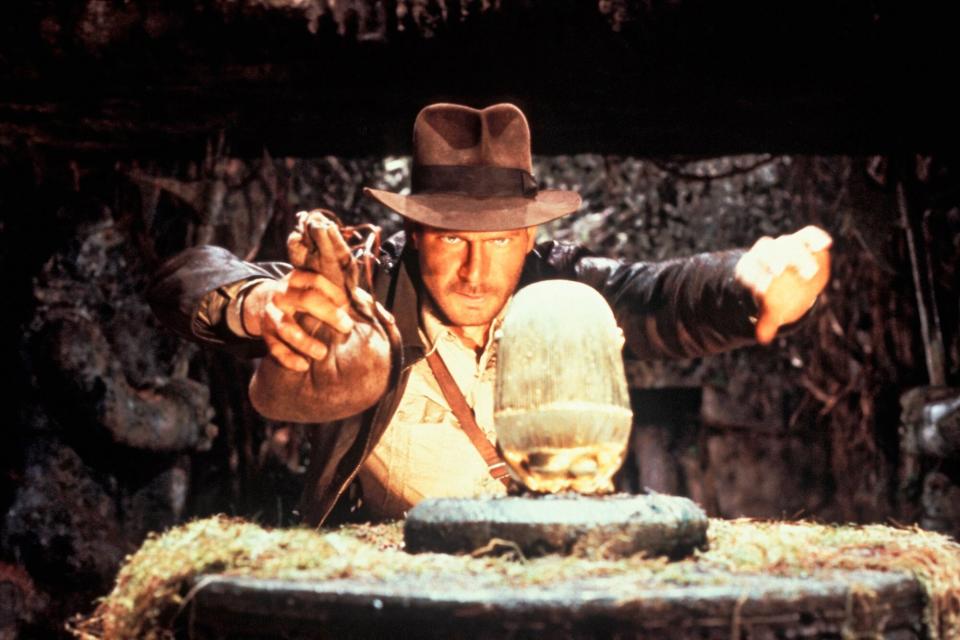
4. <i>Jurassic Park</i> (1993)
How can you capture the awe at being confronted with the truly incomprehensible? What is the sound of your first encounter with the impossible? John Williams typically has the answers to these questions.
His sweeping theme for Jurassic Park accompanies the first view of a herd of brontosauruses, matching the wide-eyed wonder of Sam Neill and Laura Dern beat for beat. That grandiosity simmers down into terrifying chase soundtracks and menacing hunter's heartbeats as the movie continues, but the after-image of those glorious strings lingers through the rest of the franchise.
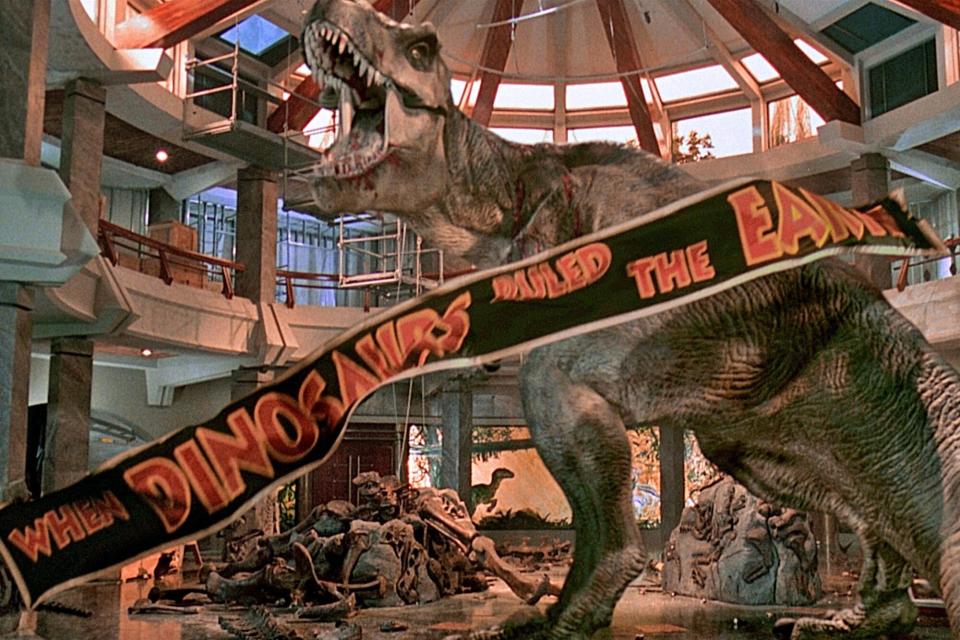
3. <i>E.T. The Extra-Terrestrial</i> (1982)
By the time John Williams got the call for Spielberg's E.T. The Extra-Terrestrial, he was well-versed at creating the sound of outer space. The challenge with E.T. comes in making the vastness of it all sound more cute and cuddly than frightening and awe-inspiring.
Ever one to showcase his ingenuity, though, Williams seems to find the balance by twisting his space opera strings a half-step toward "When You Wish Upon A Star," landing on the perfect backdrop for a Reese's Pieces-eating alien.
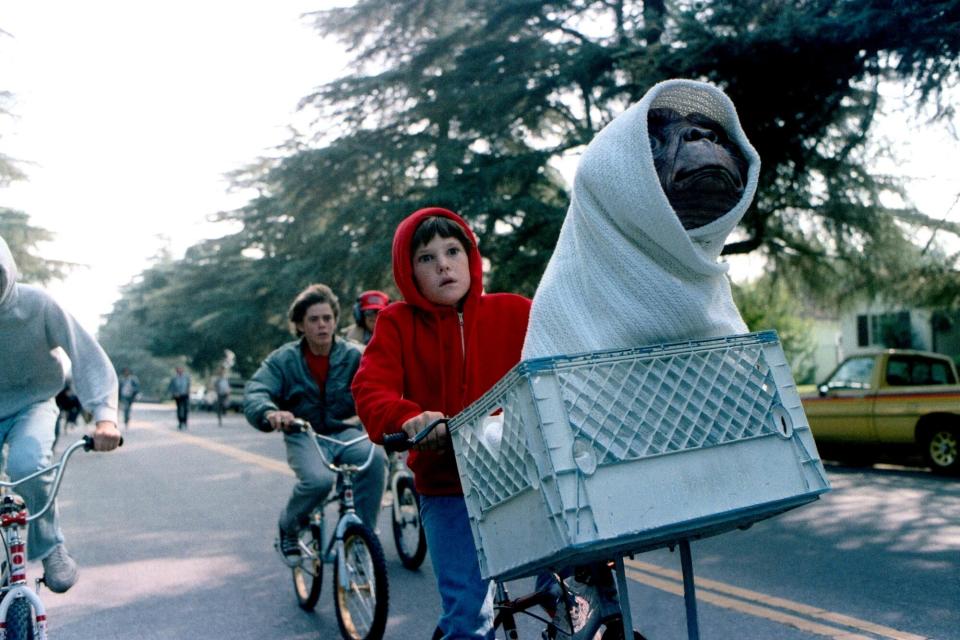
2. <i>Jaws</i> (1975)
Steven Spielberg's Jaws is largely defined by what you don't see, leaving your mind to fill in the blanks between snippets of the killer shark. This choice was largely forced onto the young director due to problems with his massive animatronic creature.
When the time came for Williams to score the results, he went along with the film's use of negative space, letting the dread fill in the emptiness between a primordial two-note bass line. The spaces get smaller and smaller as the shark approaches, radiating a sense of that closing distance until the string stabs cut into the listener like so many glistening teeth. It's an instantly iconic theme that set the tone for Spielberg and Williams' long and fruitful creative partnership.
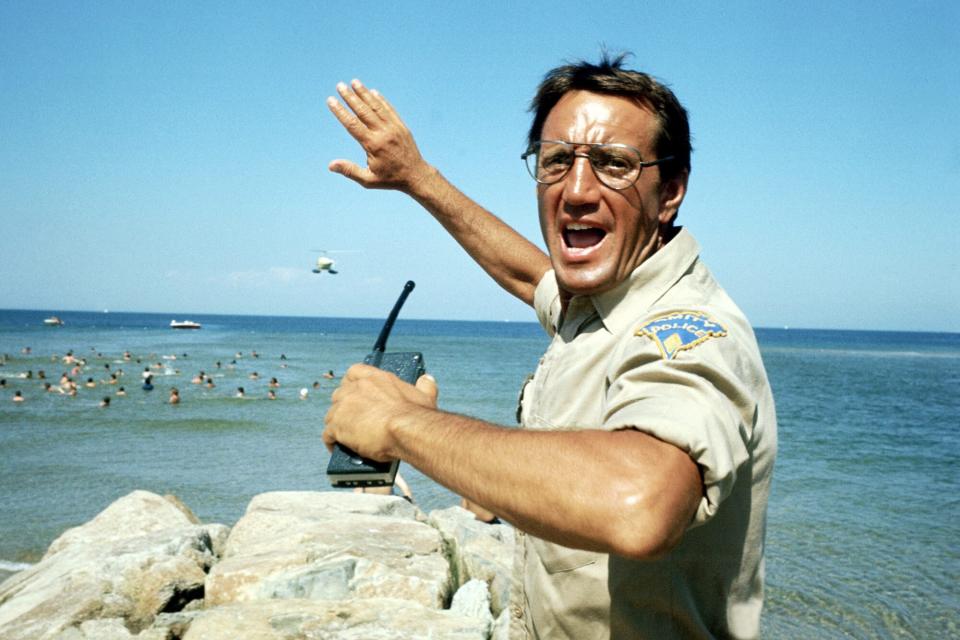
1. <i>Star Wars: Episode IV - A New Hope</i> (1977)
There's nothing new left to say about the first entry in the Star Wars franchise and its music. Williams was asked to score a piece of filmmaking that would forever change the way that movies are made.
The masterful composer managed to match director George Lucas' vision with an opening theme that fit the bill, announcing the sea change with a blast of brass that no doubt caused first-time viewers to jump in their seats. That feeling was still fresh decades later when the American Film Institute named the score the greatest of all time. How could we give the top spot to anything else?
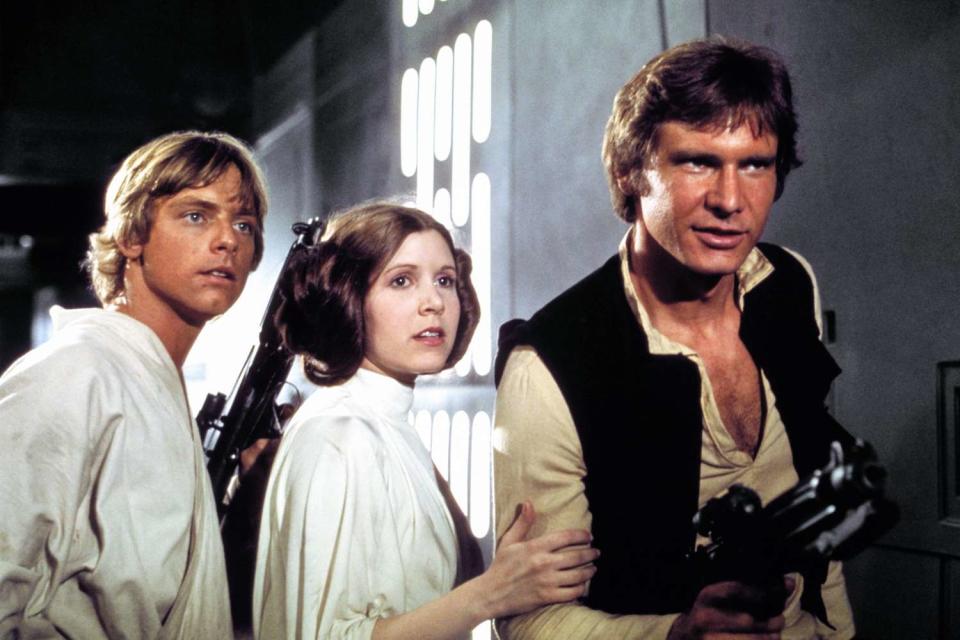
Related content:
